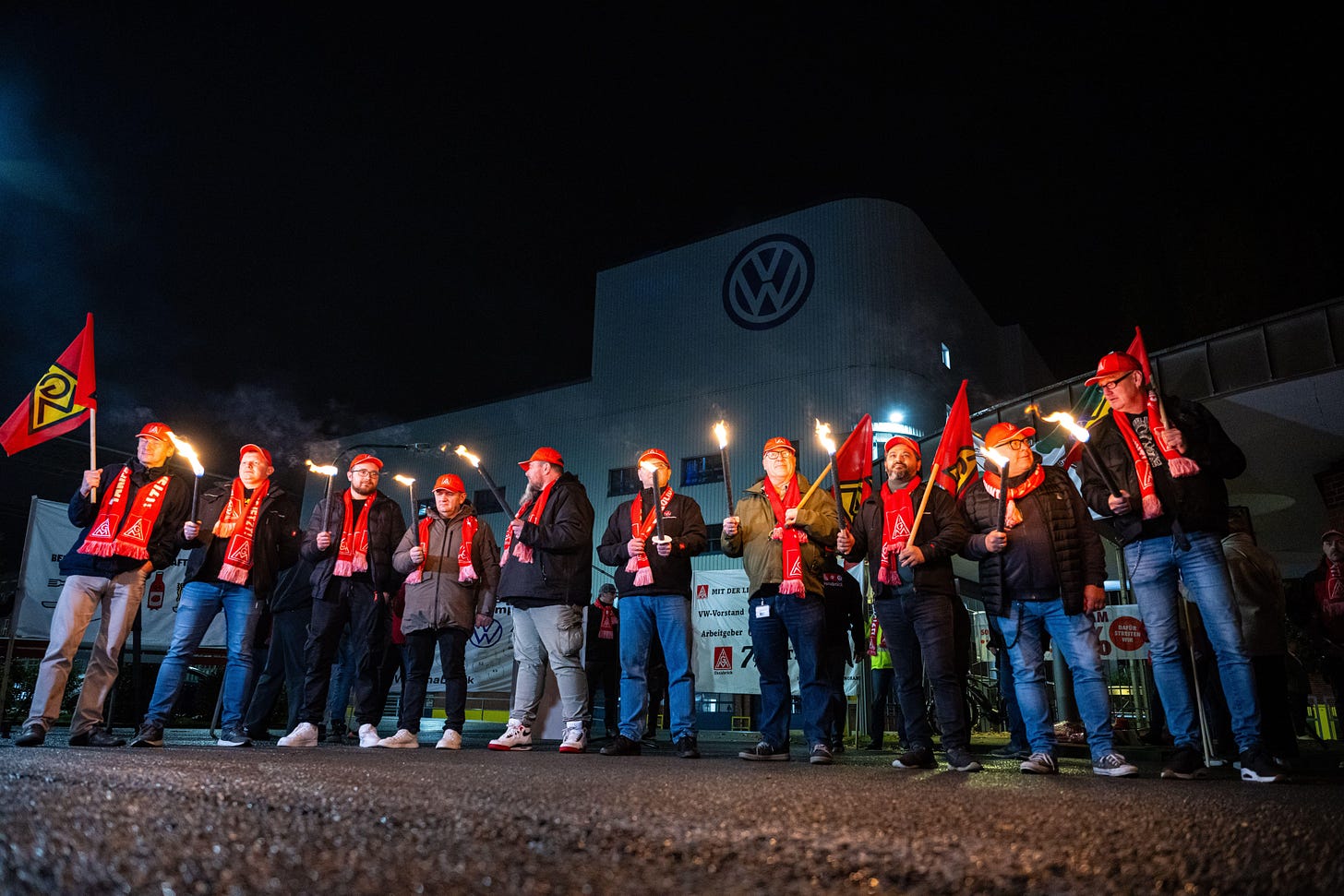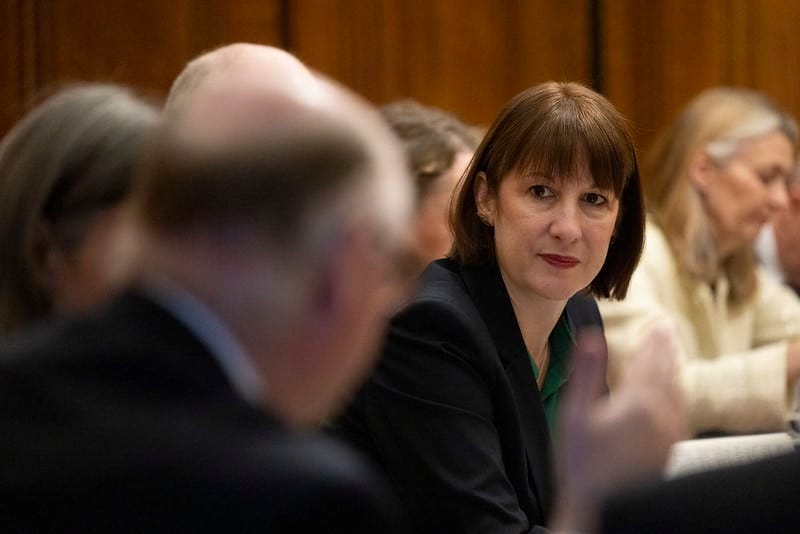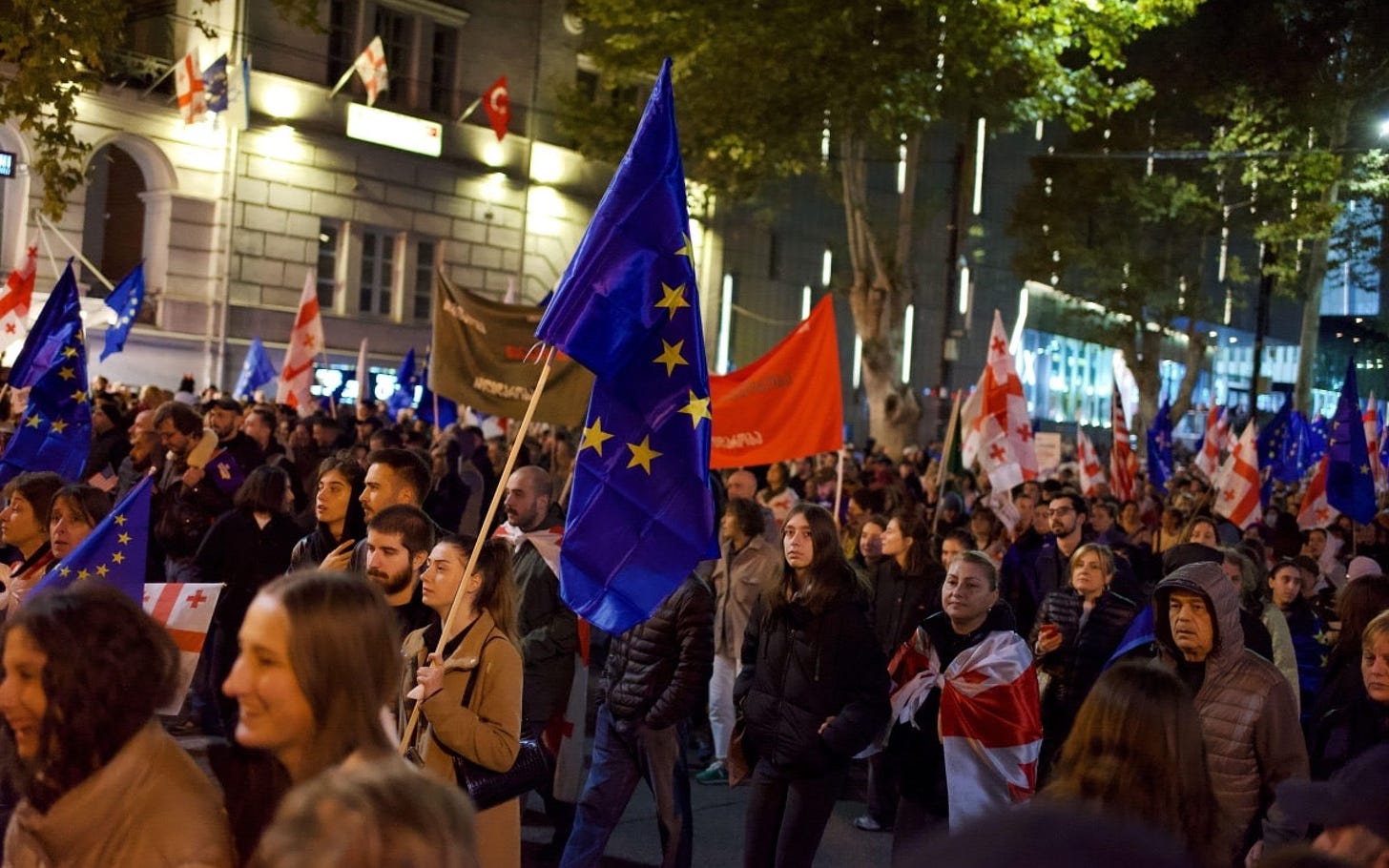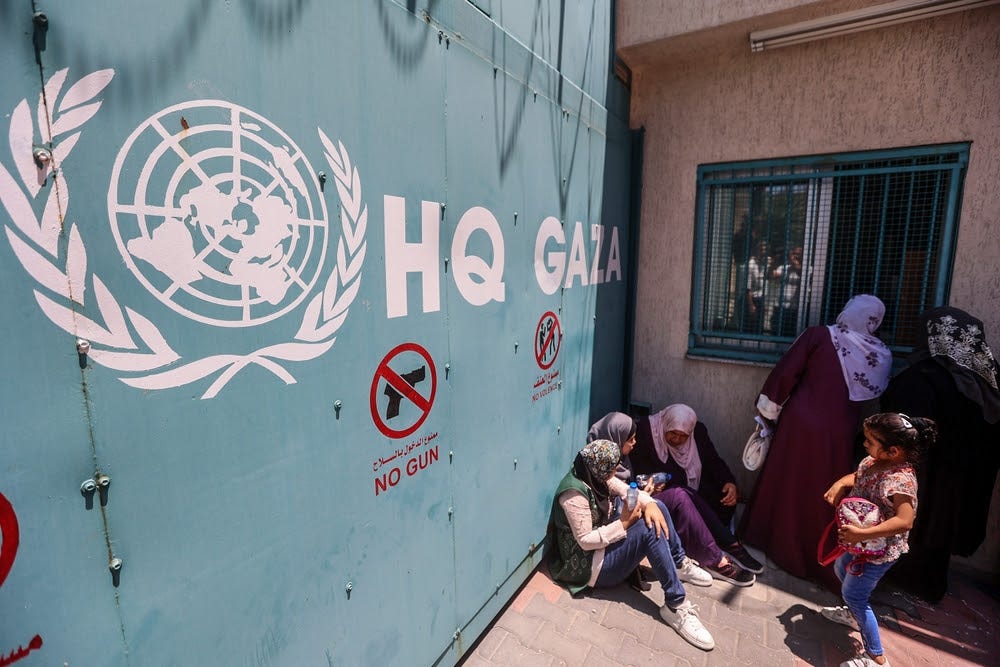VW disaster highlights Europe's decline
Plants will close and tens of thousands will lose their jobs as Germany's auto industry runs on empty.

Heartbreak struck crowds of workers amassed outside of Volkswagen’s headquarters in Wolfsburg after a company representative declared that tens of thousands will be sacked and three major plants will be shuttered for good, writes Josh Schlicht.
The severity of the proposals – which include a 10 per cent pay cut for all employees – have left workers and citizens across Germany in a state of shock this week. Many had concerns following ominous warnings from VW after years of poor performance, but few had anticipated such an austere response.
The move to enforce mass layoffs and plant closures is a first in the company’s storied 87-year history. But VW insists that this bitter pill is one it must swallow in order to recover runaway operating costs and survive in the long term. The company’s works council head stated: “management is absolutely serious about all of this. This is not sabre-rattling in the collective bargaining round.”
Workers have reacted with fury and counter they are paying the price for poor decisions made at the corporate level.
The company's decision follows years of softening demand, fierce competition from Chinese rivals, mounting regulatory boundaries, and a poorly orchestrated transition to electric vehicles. German EV demand has fallen precipitously, down 37 per cent on the year. Evidently, many Germans are steering clear of the "green" alternative after government subsidies dried up earlier this year, while others are still attracted to the roar of a V8 on the autobahn despite incessant top-down finger wagging.
The unprecedented decision from Volkswagen – which is not only Germany’s largest automaker but Europe’s – casts a dark shadow over the entire continent. French-Italian car giant Stellantis, owner of Fiat, Opel, and Peugeot is also facing a potential closure of a major plant in Turin due to financial strain, motivating Italy’s PM Meloni to threaten the crucial company in a bid to prevent its departure.
Across western Europe, industries are languishing, national debts are mounting, and runaway social spending has led the EU's former top central banker to issue a dire warning: invest and innovate now or face a “slow agony” of decline and malaise.
The EU’s proposed solutions however, are among those chiefly to blame for Volkswagen’s financial unwinding. A hyper-focus on green energy and electric vehicles – pushed primarily by the consensus of the Brussels bubble – has fallen flat with consumers across the continent and has left Volkswagen with millions of cars it’s unable to recoup a profit on.
Last month, the European Automobile Manufacturers Association launched an urgent petition to the EU to ease up on its net zero targets and build out the critical infrastructure and supply chains required for EVs instead of slamming manufacturers with hefty fines for missing unachieveable targets.
Meanwhile, Germany’s largest auto industry association urged the EU to abandon its tariff plans against Chinese EVs as the scheme could lead to devastating countermeasures against domestic firms reliant on Chinese markets for exporting. Echoing their European industry counterparts, the German automakers emphasised carving away at the Chinese-dominated battery supply chains instead of implementing extreme tariff hikes.
Throughout the EU, hasty electric vehicle initiatives, burdensome regulations, and reactive tariffs are threatening the future of the continent's integral automotive sector.
VW’s shocking decline may not be an isolated event; it appears to be a flashing red light on the dashboard, signalling that the entire European auto industry is running on empty.
Josh Schlicht
Reaction Reporter
ON REACTION TODAY
Adam Boulton
Working people farce shows Labour better sticking to we're all in it together
Gerald Warner
Georgia’s politics are warped by a delusory view of the EU
Caitlin Allen
Fears grow over potentially devastating impact of Israel's Unrwa ban
ALSO KNOW
Southport murderer charged with terrorism offence - Axel Rudakubana, the killer of three children in the heinous Southport dance studio attack, has been charged with an additional terrorism offence after police uncovered an Al-Qaida training manual in his possession. Rudakubana, 18, will also face a separate, additional charge for attempting to concoct ricin, a highly toxic poison. The accused will appear at Westminster Magistrates' Court on Wednesday.
Hezbollah selects new leader - Naim Qassem, a long serving Deputy secretary general, has been selected to replace Hassan Nasrallah as the leader of the Lebanese Islamist group. Qassem was one of the few Hezbollah higher-ups to avoid Israeli assassination in recent weeks and has found refuge in Tehran where he will direct the terror groups future operations from.
Rachel Reeves announces additional NHS funds - The government has disclosed plans to increase the NHS budget by £1.57bn in order to fund new surgical hubs, scanners and radiotherapy machines. The extra funding purportedly aims to bring down wait times and hasten patient care.
China to increase debt by one trillion pounds - Reports indicate that China is preparing even greater stimulus efforts to boost its flagging economy. The debt increase follows aggressive Chinese monetary policy measures which share in the aim to revive growth and revert falling consumption.
FIVE THINGS
Curated by the Reaction Team - Emily Gray
1.The New Statesman looks at the new English class war: Who are "working people" anyway?
2. 50,000 Oasis tickets to be cancelled for violating purchase terms writes The Guardian.
3. Obesity will starve the NHS as A&Es can't survive junk food Britain, writes UnHerd.
4. One of America’s top national security official’s questions if we can have a more ethical society. Erin Banco writes in Politico.
5. Where is Ivanka Trump and why is she so absent? Jesse McKinley in The New York Times.







